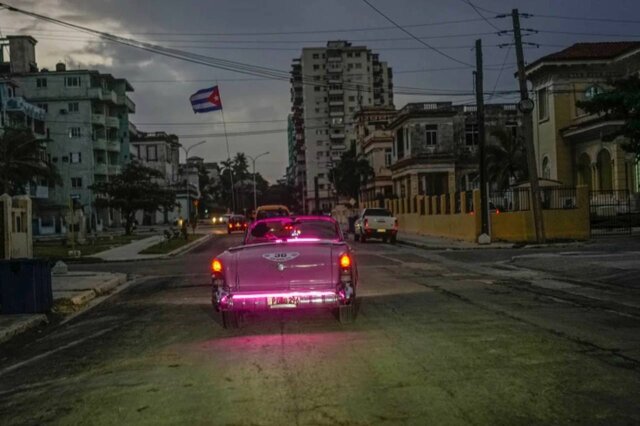Havana — Cash-strapped Cuba on Wednesday was struggling to revive its power grid, after fixing a failure at the country’s largest power plant, which had caused yet another nationwide blackout.
Roman Perez Castaneda, the deputy technical director of the Guiteras thermal power plant in central Cuba, said the problem had been resolved, but most of the country was still in the dark.
Perez Castaneda, quoted in government media, said the Guiteras plant could resume power generation at 8:00 pm local time on Thursday.
According to authorities, 22 percent of the population, particularly hospitals, were able to get power from sources independent of the national grid, while the rest had none.
The blackout, the third in less than two months, dealt another blow to the communist-run island of 10 million people, which is reeling from the effects of two hurricanes, repeated power outages and a severe economic crisis.
In mid-October, a massive four-day blackout hit the nation of 10 million people, leaving life in the capital Havana at a virtual standstill.
The cause of that outage, like Wednesday’s, was a failure at the Guiteras plant, the biggest of Cuba’s eight aging thermoelectric power plants.
Power was restored to most of the country in the following week, before Hurricane Rafael slammed into the island in early November, knocking out the grid nationwide once again.
The energy ministry sought to downplay the gravity of the latest blackout, saying on X that a “large percentage” of the system would be back up and running by the end of Wednesday.
#Cuba
Ya funcionan islas de generación distribuida en todo del país. Se priorizan microsistemas eléctricos para el bombeo de agua.
Varias unidades están listas para iniciar arranque.
Hoy habrá un % grande de recuperación del SEN ??— Ministerio de Energía y Minas de Cuba ?? (@EnergiaMinasCub) December 4, 2024
Also writing on X, Energy Minister Vicente de la O Levy said the Antonio Guiteras plant suffered an “automatic breakdown.”
He was further quoted by state media as saying there was no damage to the plants that were operating at the time of the blackout.
Schools in Havana were closed and non-essential state services suspended on Wednesday in now-familiar scenes that have caused growing frustration among Cubans.
“We live in fear of power cuts and blackouts,” Orlando Matos, a 56-year-old night watchman in the central Havana district of Vedado, complained.
‘Depressed’
Communist authorities have blamed previous outages on difficulties in acquiring fuel for the country’s power plants — attributed to the tightening of a six-decade-long US trade embargo that intensified during Donald Trump’s first presidency.
But the island is also in the throes of a broader economic malaise with what experts call its worst economic crisis since the collapse of the Soviet Union, which heavily subsidized the one-party state.
The island gets its power from eight decrepit oil-powered plants that are constantly being patched up, as well as a fleet of generators and floating power plants rented from Turkey.
The generators and Turkish plants are run on imported fuel.
The repeated power cuts triggered protests last month — a rare occurrence on the island.
Osnel Delgado, a 39-year-old contemporary dancer, complained Wednesday that the situation was making him “depressed.”
#Cuba PLUNGED INTO DARKNESS!
Major power plant failure in Matanzas province causes nationwide blackout.
Work & classes cancelled until power is restored.
Energy ministry investigates.
Mojitos in the dark, anyone?
Cubans face night without electricity.#Blackout #PowerOutage pic.twitter.com/n0BBfrZWl1
— Facts Prime (@factsprime35) December 5, 2024
“You try to constantly overcome the situation but when the environment doesn’t help you, you wind up not wanting to do anything,” he said.
Thousands of Cubans took to the streets across the island on July 11, 2021, shouting “We are hungry” and “Freedom!” in what was the biggest challenge to the government in years.
According to the Mexico-based Justicia 11J NGO, which focuses on human rights in Cuba, more than 1,500 people were arrested after those protests, of whom 600 are still in prison.
Follow African Insider on Facebook, Twitter and Instagram
Source: AFP
Picture: X/@iglesias_gabby
For more African news, visit Africaninsider.com


